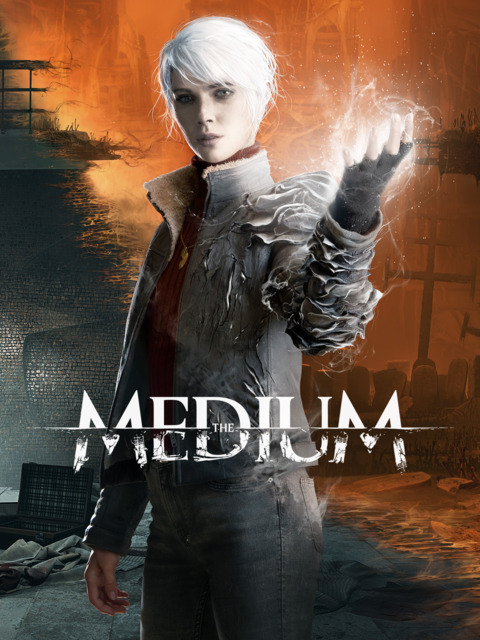There’s an aspect to the game, The Medium, that I’m not sure has gotten quite enough attention. Nor am I sure exactly how I feel about it. Specifically, how the game’s narrative handles abuse of children. Obviously, I’m going to mention spoilers so if you haven’t reached, say, the 75% mark in the game maybe come back to this post later. But if you have, or simply don’t care about spoilers, here’s a quick recap of what I’m referring to.
SPOILERS
So, there are two abusers that get a focus in the game. The first is a Stepfather who is verbally, emotionally, and physically abusive toward his wife and stepson. This person is handled in a manner that you’d expect; he’s a villain who eventually gets his comeuppance. The more complicated story of abuse involves the stepson. The story of the Stepfather takes place in the late 1930’s, early 1940’s. The stepson becomes a character, albeit as a ghost, in the game’s present day, in the late 1990’s. The stepson, named Richard, becomes an abuser himself, which we as the audience learn prior to hearing his backstory. Richard grooms and sexually abuses a young child, who the main character meets in the present day, the child also taking the form of a spirit. We learn about Richard’s abuse prior to learning about his backstory, which doesn’t just focus on his Stepfather.
During the time of Richard’s abuse by his Stepfather, while he was a child, the game also tells a side story about his relationship with a young girl. It isn’t explicit, but you get the idea that Richard falls in love with this girl, but she is ultimately taken from him (the details of which aren’t particularly relevant to Richard’s development, so I’ll leave that out). Richard’s behaviors as a child with this girl he loves mimics some of his behaviors with the young child he groomed as an old man. Details like this plant ideas in the audiences’ mind, like how he is reliving his childhood love with young girls as an adult. That, along with the story have sympathy for young Richard, who is abused by his Stepfather, does the work of rounding out that character and, in some ways explains, though doesn’t excuse, his later bad behavior, namely grooming and abusing a child.
The game doesn’t take a hard stance on how it views Richard and his abuse aside from letting to characters, the two playable characters, give their opinion. One essentially suggests that Richard’s backstory is irrelevant and that he’s a bad man that is deserving of punishment. The other essentially says the same but when asked by Richard’s ghost if she would forgive him (and if she thought the child he abused would forgive him) she replies that it isn’t her place to forgive, just to move his spirit on to wherever it is sprits go.
So, I’m curious what you all think of this. I don’t think the question is whether it is advisable for a game to round out their villains with backstories. But, rather, does the type of bad behavior warrant different types of rounding out? I guess, was it advisable for this game to make a sexually abuser sympathetic? To give a profile of the person to explain his later actions?
For my two cents, I’m a bit biased. I’m a mental health therapist who has worked for about ten years now. One of the concepts that every therapist must come to grips with is how do they relate with and support a person who has done bad behavior and are their certain behaviors where you simply can’t do that. For me, I have worked with abusers of all types, including sexual abusers of children. Frankly, it is hard for me to look past it. I’m able to do it in the moment, using techniques like identifying with the person rather than their behaviors, seeing my role as helping to stem the bad behaviors from happening again, and so on. To do that, I do have to round out my clients, so to speak. It helps me to know how they got to where they are today. In part, knowing an explanation for a bad behavior makes me understand the person behind the behavior. But I always keep in the forefront of my mind that an explanation is not an excuse. That’s where I think The Medium succeeds in this. They make it clear that sympathy you may have for Richard as a child doesn’t have to relate to him and his behaviors as an adult. Further, the profile they make of him for his bad behavior seems well defined as an explanation for the behaviors, not an excuse that makes the bad behaviors justifiable or allowable. But I’m not sure if there’s a place for this sort of character development in games, or film. Though I appreciate it because it is a risky thing to do, it also so easily can make survivors of abuse feel badly, you know? It feels to me like the downsides are so extreme and the upsides so minimal that I’m not entirely sure that there’s a place for character development like this in games or media in general. Save it for the real world, for therapy and such. But that’s just my take. What do you all think?

Log in to comment